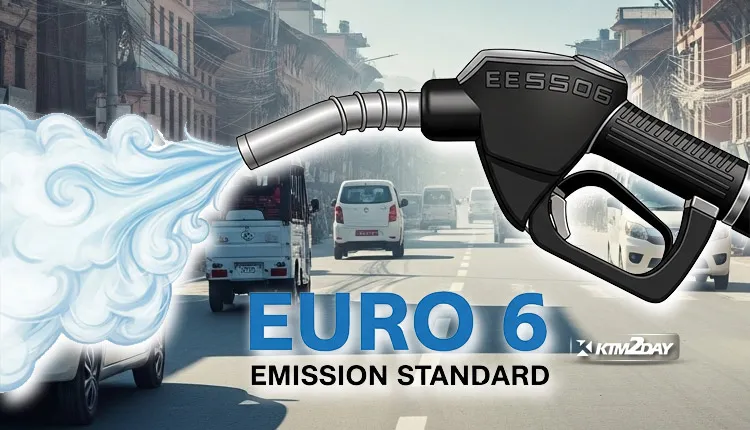Nepal Takes Bold Leap Towards Cleaner Air, Adopts Euro 6 Emission Standards


Kathmandu, Nepal – June 26, 2025 – In a significant move to combat escalating air pollution, Nepal has officially implemented new, stringent vehicle emission standards, making Euro 6 mandatory for four-wheeled vehicles. This long-awaited decision, formalized by the Ministry of Forests and Environment through a recent Nepal Gazette notification, marks a substantial upgrade in the nation’s environmental policy.
The new Vehicle Emission Standard 2082 (2025 AD) dictates that all vehicles with four or more wheels entering Nepal must now comply with Euro 6 emission norms. For two-wheelers, three-wheelers, and lighter four-wheeled vehicles, the standard has been set at Euro 5. These stricter controls are specifically designed to curb harmful pollutants such as carbon monoxide (CO), hydrocarbons (HC), nitrogen oxides (NOx), particulate matter (PM), and particle number (PN) concentration.
This policy shift is particularly noteworthy as Nepal has effectively bypassed Euro 4 and Euro 5 directly, jumping from the existing Euro 3 standards, which had been in place since 2012/13 BS (around 2012/2013 AD). This leap demonstrates a strong commitment to accelerating efforts against vehicular emissions, which are a major contributor to air quality degradation in urban centers like Kathmandu.

The new regulations apply exclusively to vehicles imported after the effective date of the notification, which became active around June 24-25, 2025. Vehicles already in transit, or those with cleared payments and completed documentation prior to this date, remain exempt from the new standards.
In addition to setting emission thresholds, the new standard also outlines detailed testing procedures. These include the use of engine dynamometers for heavier vehicles and chassis dynamometers for lighter ones, along with mandates for testing the durability of pollution control devices. The previous Nepal Vehicle Emission Standard 2069 has been formally repealed, paving the way for a new era of cleaner transportation in the country.
This landmark decision is expected to significantly improve air quality across Nepal, fostering a healthier environment for its citizens and aligning the nation with more advanced global emission standards.















